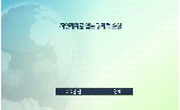최근 기후변화의 영향으로 강우에 의한 도시지역의 유출 및 수질악화가 증가되고 있으며 이러한 문제점을 해결하기 위하여 우수 최적관리기술(Best Management Practice, BMP)가 새롭게 도입되었다....
http://chineseinput.net/에서 pinyin(병음)방식으로 중국어를 변환할 수 있습니다.
변환된 중국어를 복사하여 사용하시면 됩니다.
- 中文 을 입력하시려면 zhongwen을 입력하시고 space를누르시면됩니다.
- 北京 을 입력하시려면 beijing을 입력하시고 space를 누르시면 됩니다.
기후변화를 고려한 유역스케일 우수 최적관리기술(BMP) 모델링
한글로보기https://www.riss.kr/link?id=G3735855
- 저자
-
발행기관
-
-
발행연도
2013년
-
작성언어
Korean
-
주제어
기후변화 ; Climate change ; modeling ; stormwater BMP ; 최적관리기술 ; SWMM ; 도시유출 ; 유역단위
-
자료형태
한국연구재단(NRF)
-
0
상세조회 -
0
다운로드
부가정보
국문 초록 (Abstract)
최근 기후변화의 영향으로 강우에 의한 도시지역의 유출 및 수질악화가 증가되고 있으며 이러한 문제점을 해결하기 위하여 우수 최적관리기술(Best Management Practice, BMP)가 새롭게 도입되었다. 하지만 대부분의 BMP 시설의 효과에 관한 연구는 현재조건에서 이루어졌으며, 미래 기후변화를 고려하여 분석한 연구는 거의 전무한 상황이다. 따라서 본 연구에서는 서울시 소재 군자배수구역을 대상으로 기후변화를 고려하여 BMP 시설 중 도시화가 많이 진행된 유역에 적합한 투수성 포장과 옥상녹화 설치 시 효과를 분석하였다. 기후변화 시나리오로 서울의 과거 강우자료를 활용하여 Trend Analysis 방법으로 현재, 2020년, 2050년에 있어서의 작은 강우(재현기간 2년)와 큰 강우(재현기간 100년)를 추정하였다. 대상유역의 GIS 분석을 통하여 각 우수 BMP의 최대 설치가능 면적을 구하였으며, 이에 대한 유출모의는 미국 환경청(US EPA)의 SWMM(Storm Water Management Model)모형을 이용하였다. 우수 BMP 설치에 따른 모델링 결과 미래 기후변화에 의한 첨두홍수량이 현재의 첨두홍수량 보다 낮아지는 것을 확인할수 있어 기후변화 대응효과가 있는 것으로 평가되었다. 이와 같은 방법론에 따라 우수 BMP의 규모결정 및 우수 BMP간 비교분석을 통한 적정 우수 BMP결정이 가능할 것으로 기대된다.
다국어 초록 (Multilingual Abstract)
Climate change has affected both water quantity and quality by increased rainfall, increasing runoff and associated pollutant loading in urban areas. Stormwater Best Management Practices (BMPs) are now being considered for the reduction of increased r...
Climate change has affected both water quantity and quality by increased rainfall, increasing runoff and associated pollutant loading in urban areas. Stormwater Best Management Practices (BMPs) are now being considered for the reduction of increased runoff due to urbanization. Most research has been conducted on the analysis of BMP effectiveness under current condition. However, there is no extensive literature on BMP effectiveness studies considering climate change. In this study, the effectiveness of BMPs, in particular porous pavement and greenroof, has been assessed under climate change scenarios. The Goonja drainage located in the Metropolitan Seoul of Korea was chosen as the test site for this study. Climate change scenarios were generated by trend analysis of the historical rainfall data collected at Seoul Station. The 2-year and 100-year design storms having 24-hour duration were determined as small and large design storms for three scenarios - current, 2020 and 2050, using frequency analysis. Storm Water Management Model (SWMM) was then used to evaluate the impact of climate change and the effect of incorporating porous pavement and greenroof on runoff. From the GIS analysis, the maximum area of 33.4% and 36.7% of the Goonja drainage were found to be suitable for the ins











